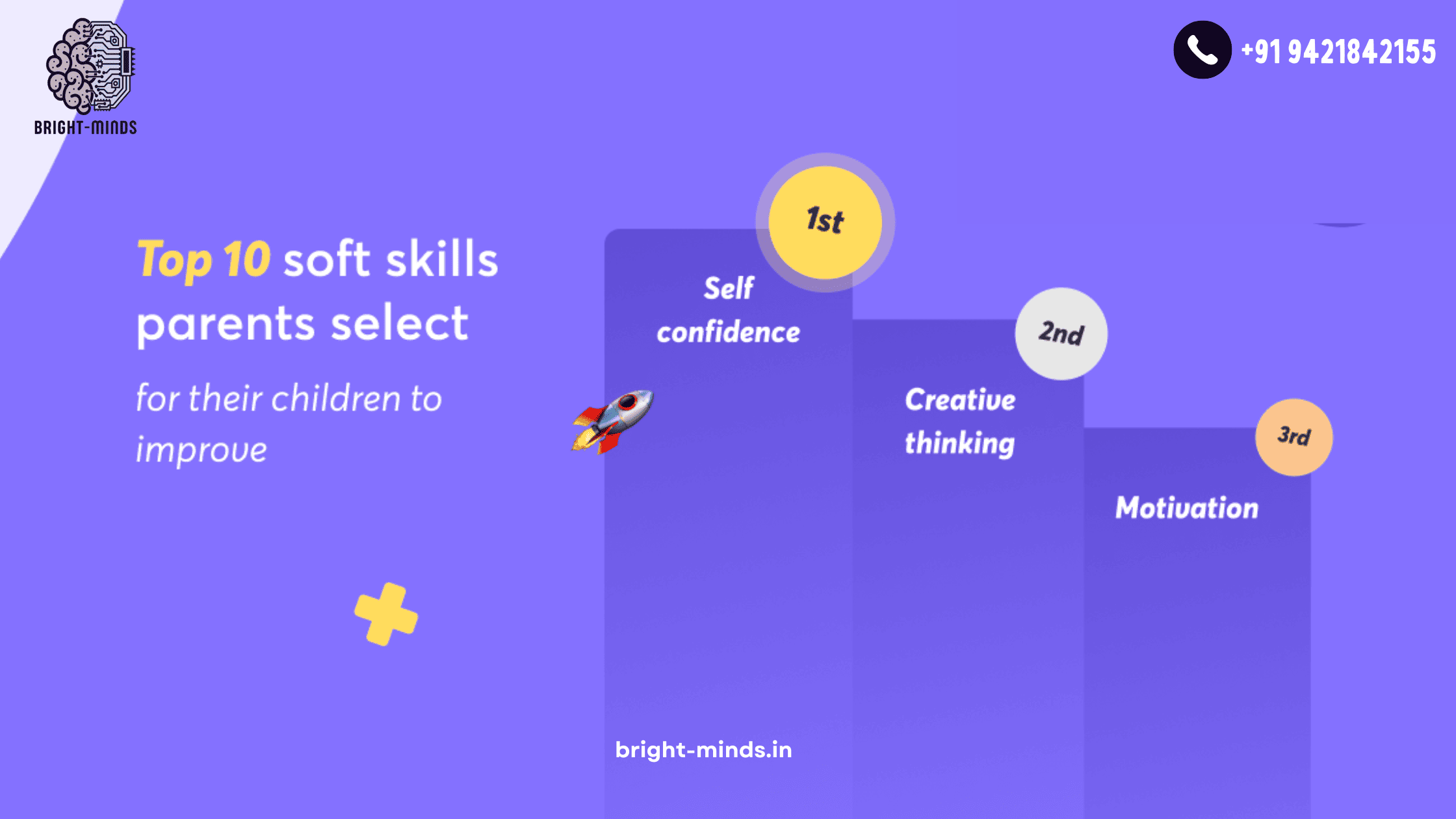Academic achievement on its alone is insufficient in the modern world. Children must also acquire critical soft skills—the character traits that enable them to solve problems, control their emotions, and engage with others in a productive manner—if they are to succeed in school, at home, and eventually in the career. These abilities transcend textbooks and have the power to influence a child’s future and personality.
The top ten soft talents that any child should acquire are as follows:
1. Communication Skills
Effective communication helps children express their thoughts clearly and listen to others with respect. This includes both verbal and non-verbal communication. Encouraging kids to participate in discussions, presentations, or storytelling can boost this skill.
2. Teamwork and Collaboration
Children need to learn how to collaborate with others from an early age. Learning to collaborate, share ideas, and respect others’ viewpoints is crucial for success in any group environment, whether it be a team sport or a school assignment.
3. Problem-Solving
Teaching kids to face challenges calmly and find solutions builds resilience. Activities like puzzles, brain games, or real-life situations (like resolving a sibling argument) help develop their problem-solving abilities.
4. Critical Thinking
Critical thinking helps children analyze situations, ask questions, and make informed decisions. Encourage kids to ask “why” and explore multiple perspectives rather than memorizing answers.
5. Emotional Intelligence
Understanding and managing their emotions helps kids handle stress, build better relationships, and show empathy. Parents and teachers can support this by talking about feelings and modeling emotional awareness.
6. Time Management
As kids grow, they juggle schoolwork, hobbies, and social time. Teaching them to plan, set goals, and stick to a schedule helps them become more responsible and independent.
7. Adaptability and Flexibility
Change is a part of life. Helping children adjust to new routines, environments, or tasks without frustration prepares them to handle unexpected challenges in the future.
8. Leadership Skills
Leadership isn’t just for grown-ups. Even young children can learn to take initiative, guide their peers, and act as role models. Simple tasks like being a class monitor or leading a small group can help.
9. Responsibility
Learning to be responsible for their actions, belongings, and commitments makes children more reliable and self-aware. Giving them age-appropriate chores or tasks builds this trait gradually.
10. Self-Motivation
Self-motivated children are more likely to develop objectives and pursue them on their own without continual guidance. This ability can be developed by promoting curiosity and rewarding effort rather than merely results.
Final Thoughts
Academic learning is vital, but so is the development of soft skills. These characteristics have a lasting effect on children and can have a big influence on their success in school and the workplace. Through regular encounters, practical experiences, and encouraging words, parents, educators, and other caregivers are essential in fostering these traits.
Do you want to support your child’s holistic development? Start with these ten soft skills now, and you’ll see their self-assurance and moral fiber blossom!
You may be like this:-
Express Yourself: Fun Games to Boost Kids’ Social Skills
How Art and Craft Activities Help Preschoolers Develop Skills

